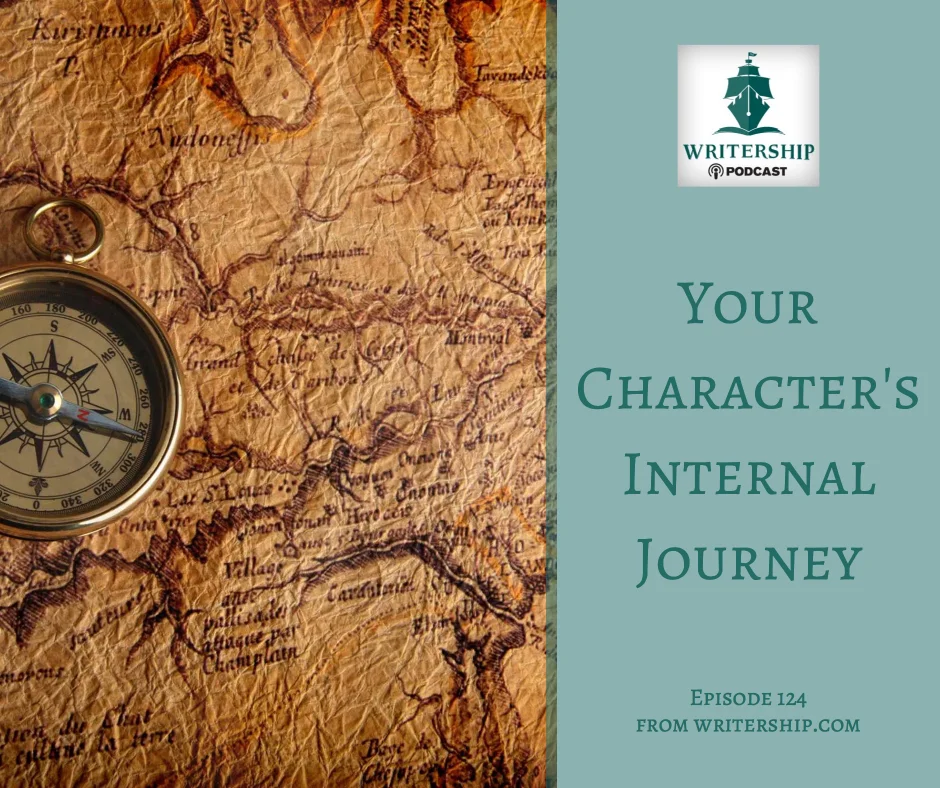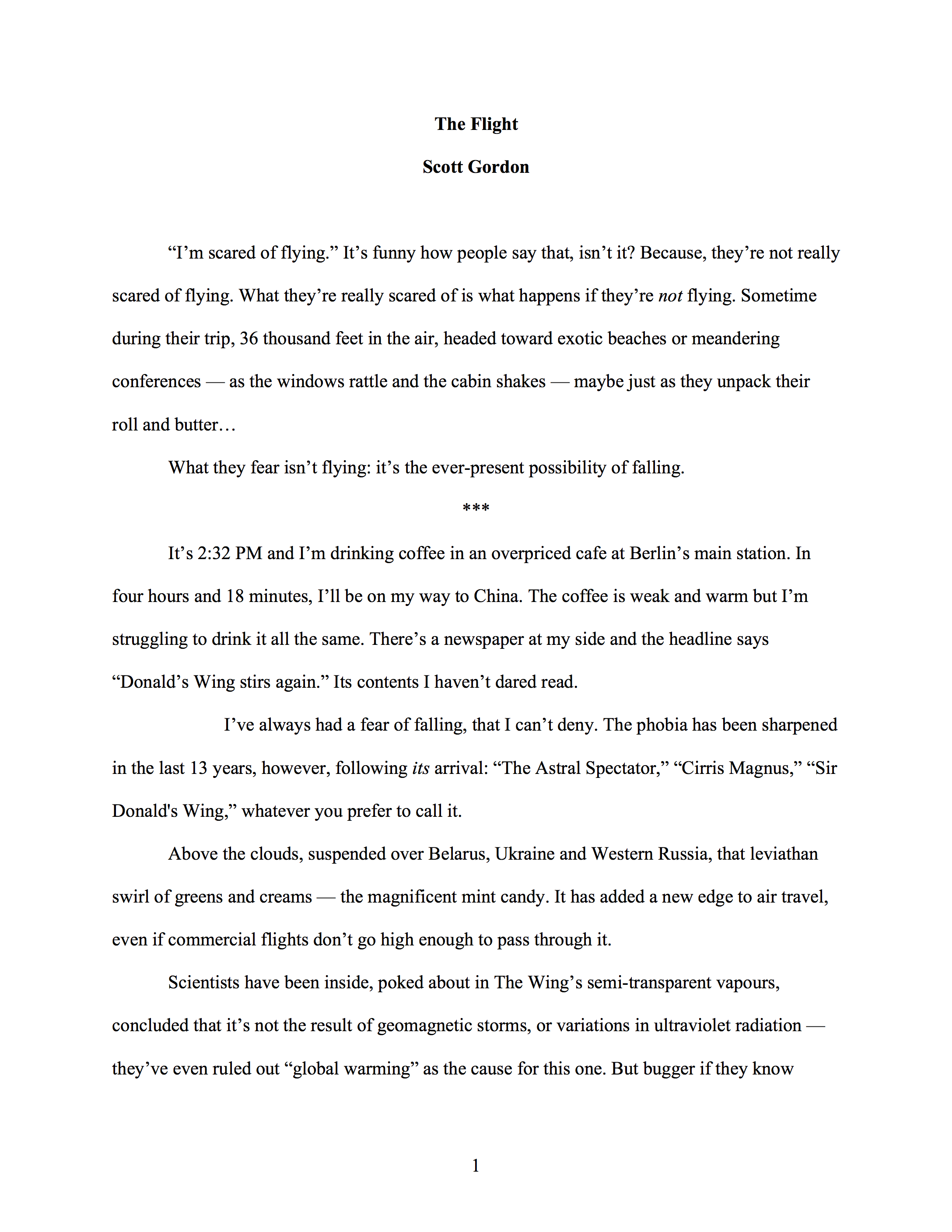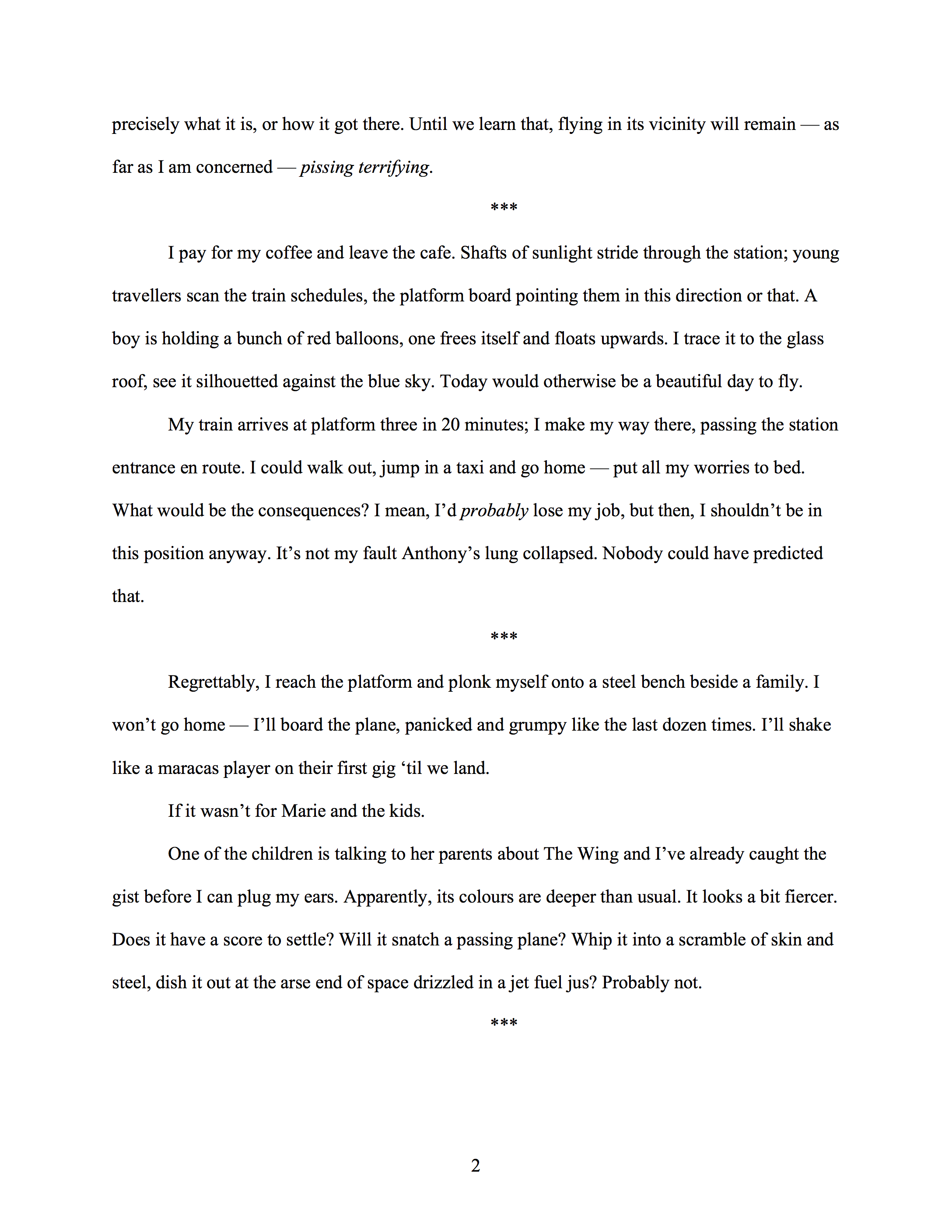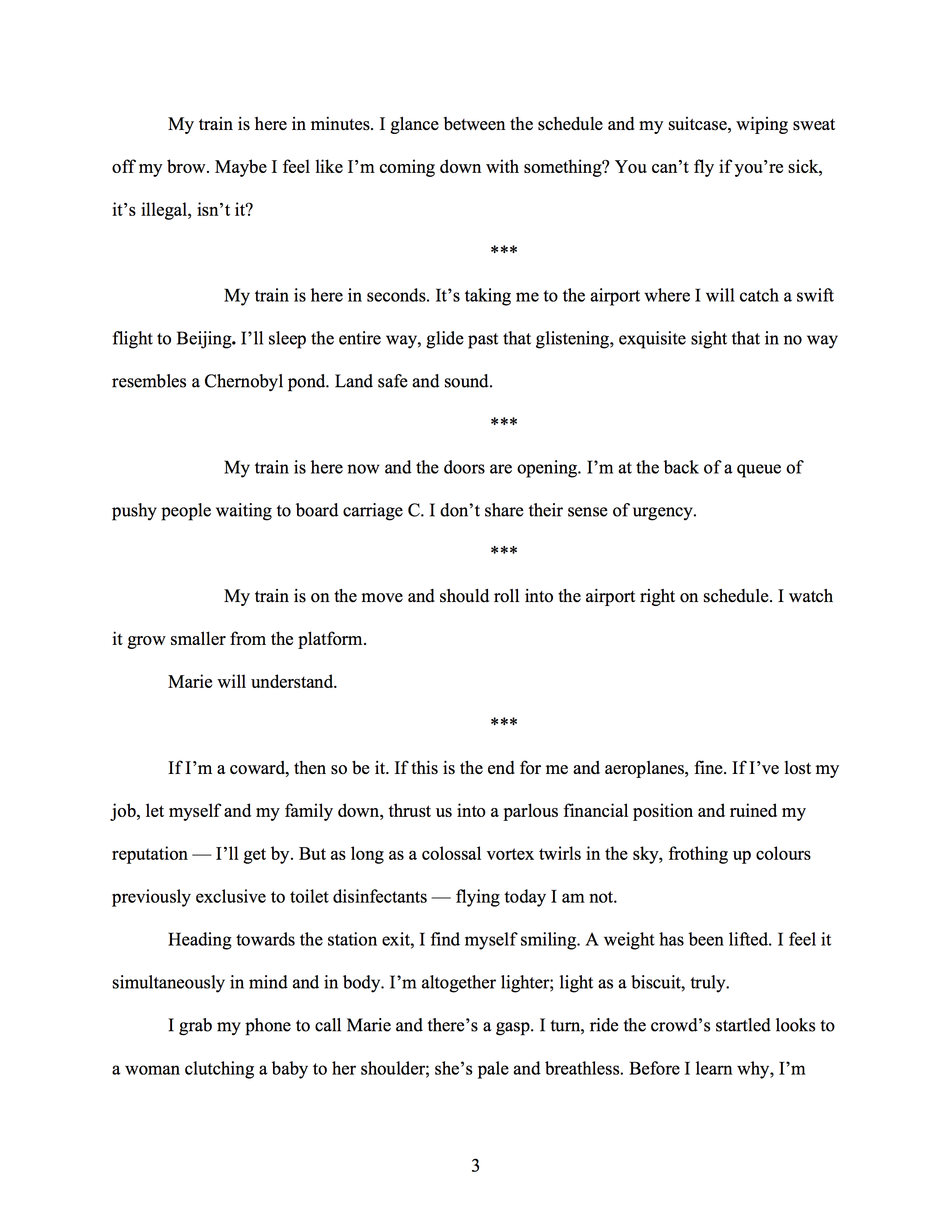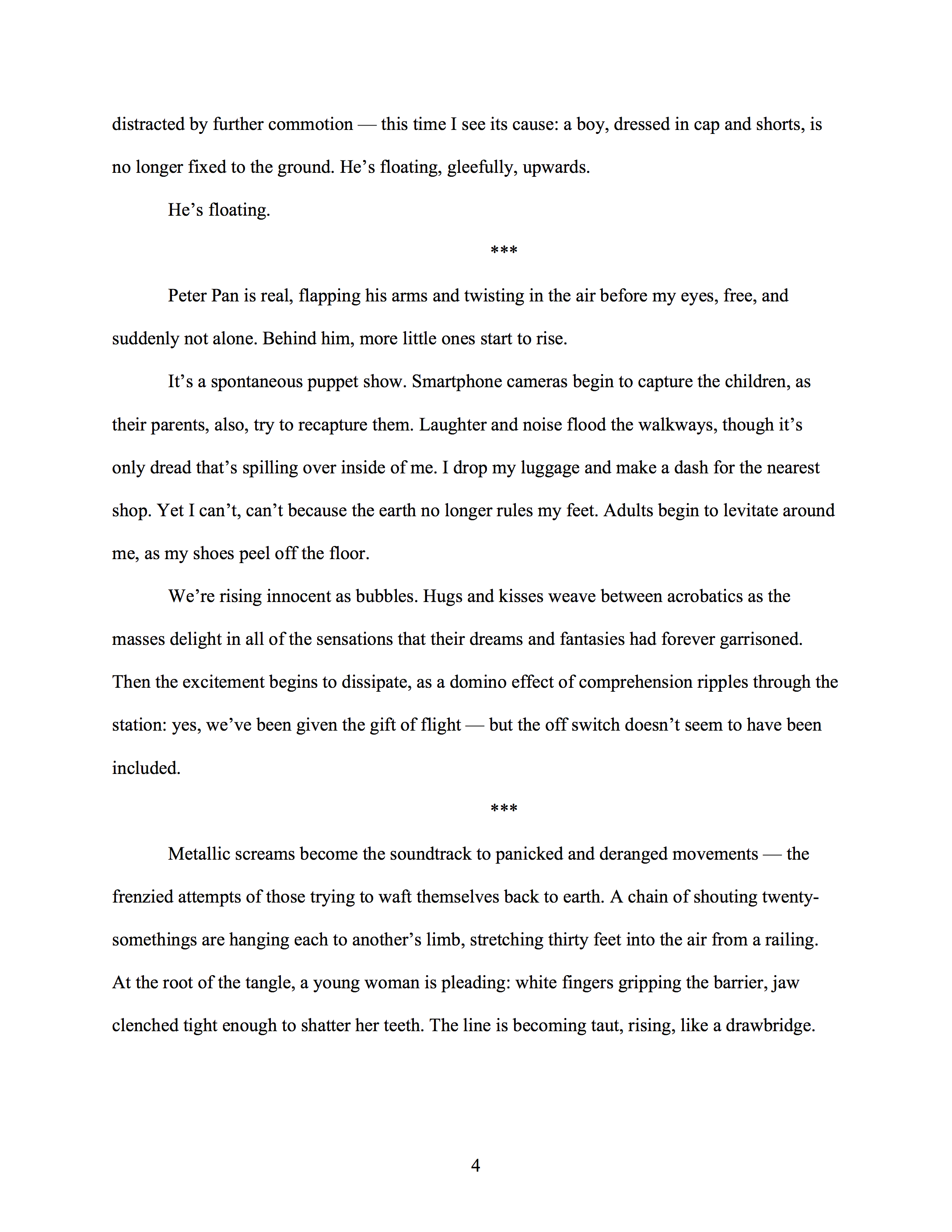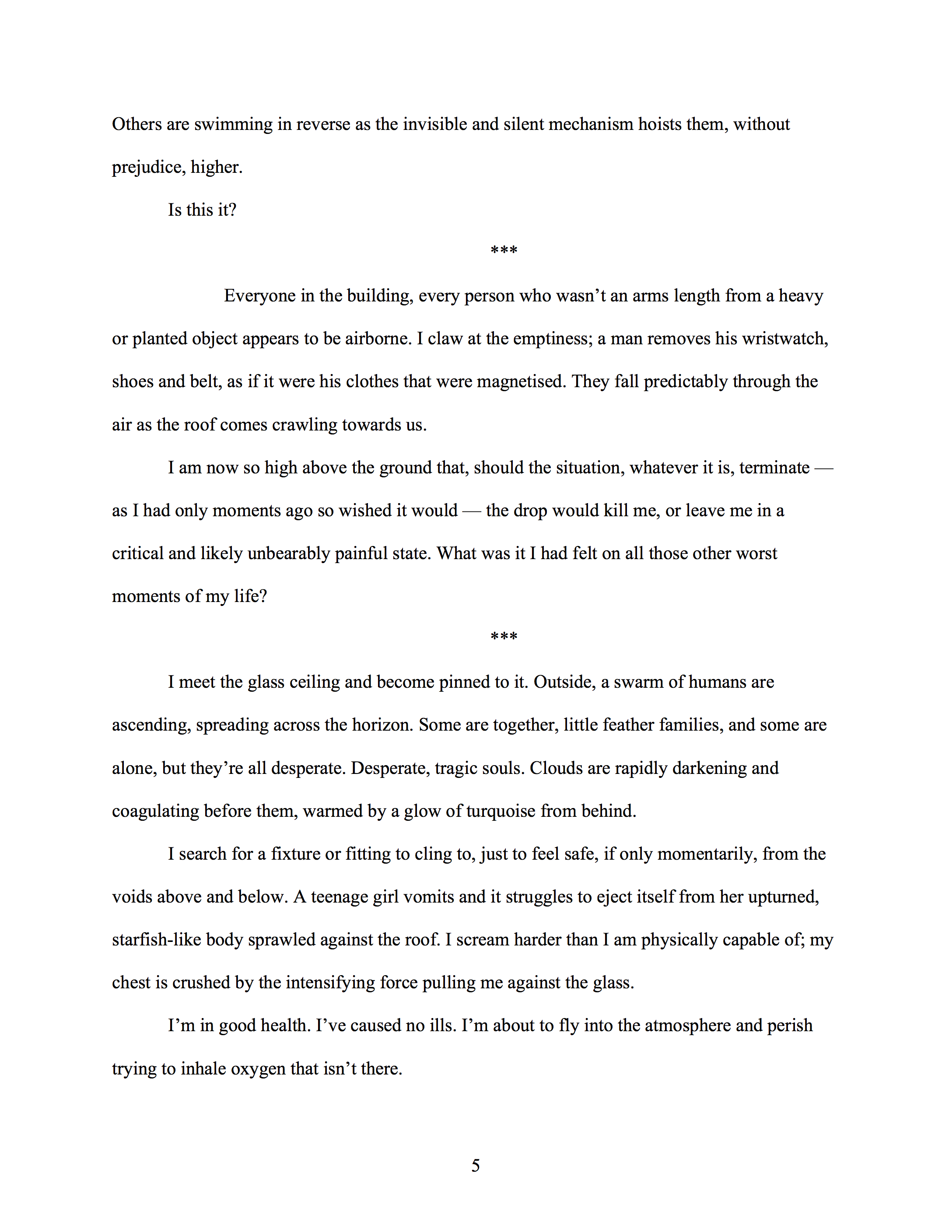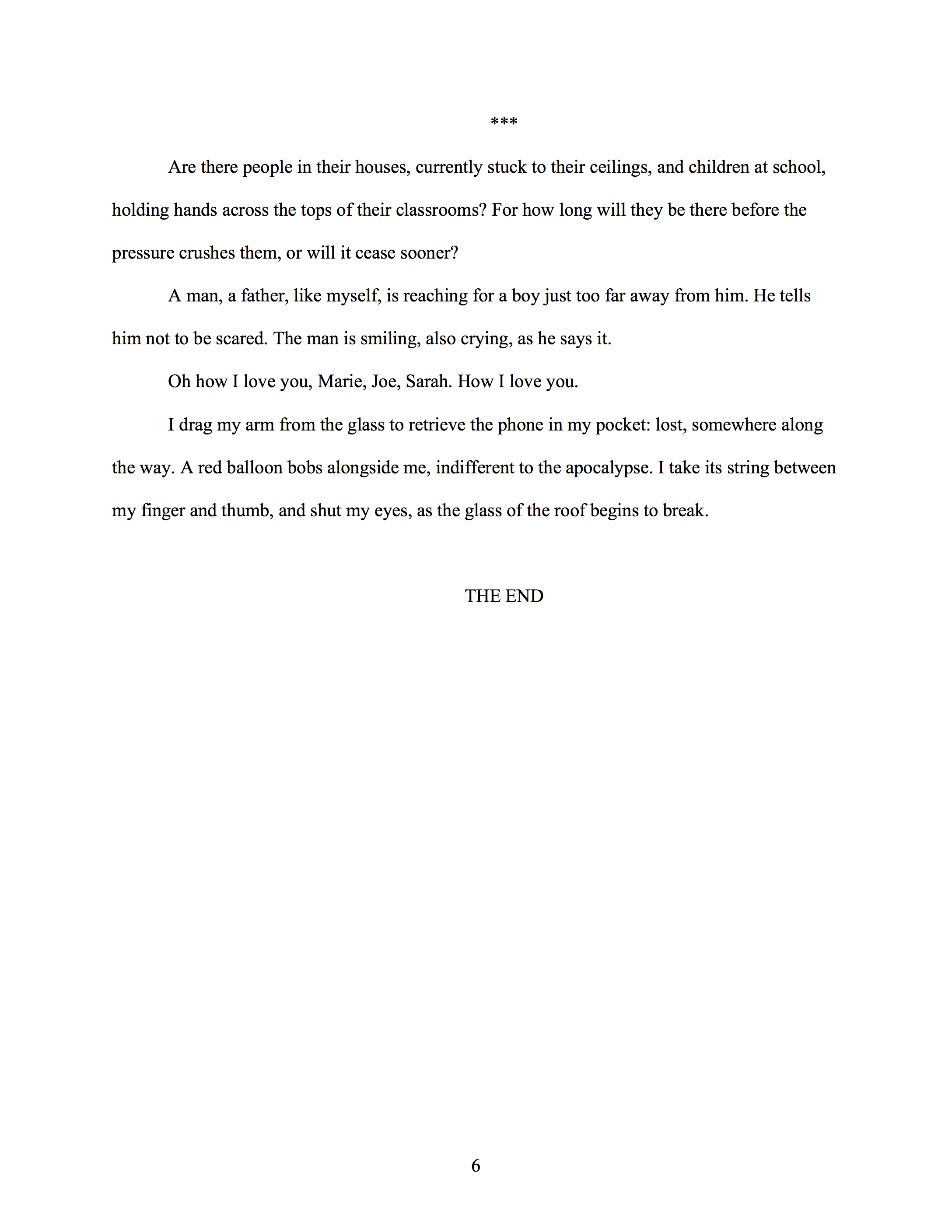In this episode, Certified Story Grid editors Leslie Watts and Rebecca Monterusso critique “The Flight,” a science fiction short story by Scott Adam Gordon. They discuss the internal journey or change that characters experience as a result of external events in a story and then uncover which internal genres could be present in “The Flight.” This week’s editorial mission offers questions to help you identify and craft the internal change at work in your stories.
Listen to the Writership Podcast
This week's submission contains some adult language.
About Our Guest Host
Clark is taking a well-earned rest so this week we're joined by Rebecca Monterusso.
Rebecca is a certified Story Grid editor, analytical creative, and renaissance soul. She has been to seven different countries and has held jobs in multiple industries, all of which has helped her become an effective communicator and passionate learner.
Her overall goal is to help writers learn to tell their stories better because she believes stories are the only way to really change the world. You can find her online at RebeccaMonterusso.com.
Wise Words on Story
“Stories of imagination tend to upset those without one.”
Mentioned on the Show
Our guest narrator
This week’s submission is narrated by C. Steven Manley, the author of the Paragons Trilogy, the Brace Cordova Space Opera series, and host of the Story Shots Podcast. You can find out more about him at cstevenmanley.net.
The Writership Index
Listeners have asked for an index of the podcast episodes and the topics discussed, so we've put together a Google spreadsheet containing details of each episode, its airdate, author name, story title, genre, story type, published location, author website, and topics discussed. Get access to the spreadsheet here.
Join the Writership Book Club!
Join the Writership Quarter Masters Book Club! Each month I'll choose a book from your suggestions. We'll read it and, together in a (virtual) book club meeting, analyze it the way I would for a Story Grid Diagnostic.
In December we read The Murders in the Rue Morgue by Edgar Allan Poe. Join now so you'll be in the group for this month's book announcement. For more information, visit our Patreon page.
The Sell More Books Show Summit
Jim Kukral of the Author Marketing Club and the Sell More Books Show is doing another big conference. This time in Chicago in May of 2018. It's called the Sell More Books Show Summit and you can learn more and get a ticket here.
Join 175 other writers and publishing friends for this interactive, two-day conference and networking event in Chicago! Eat, drink and learn together, and be on your way to building a stronger and more profitable career as an author.
Only 175 seats are available and early bird pricing will run out soon. Click here to grab your ticket.
Editorial Mission—Check Your Protagonist’s Inner Journey
Ask yourself these questions:
Who is the protagonist?
Assess three factors:
A. What is his/her character, and how do we respond to it? (Morality/character)
B. What is his/her fortune, and do we fear it will get worse or hope it gets better? (Status/fortune)
C. What is his/her thought, and do we feel s/he is sufficiently aware of the facts of the situation and consequences of his/her behavior to be held responsible? (Worldview/thought)Which of the three factors (character, fortune, or thought) undergoes a change from beginning to end? If more than one, which is the main one, and how do the others relate?
How does it end?
Can the [internal] plot be stated in a cause and effect relationship?
Editing Advice for Our Author
Dear Scott,
Thank you so much for your submission. Despite the tragic circumstances, we enjoyed it a lot, and appreciate what you were able to accomplish in such a short piece. That’s something I want to highlight because doing those things well with lots of words is challenging, but to do so in barely more than 1,500 shows great skill.
The character’s voice in particularly strong. (I appreciate his need for precision!) We do feel as if we know him. Your choices of first person point of view and present tense really pay off in this way. This is really well done.
In terms of the Five Commandments of Storytelling, I think you’ve hit everything. His point of decision could have been made a little clearer, but keeping it vague may have been a deliberate choice. It tripped me up for a moment, but didn’t interfere with my overall enjoyment of the story.
Since we get the whole story in a small package, it presented the perfect opportunity to explore your character’s internal journey. And there’s a lot happening under the surface here.
The internal journey or internal genre or character arc are different terms to describe the change a character experiences inside as the result of external plot events. Internal genres deal with the human need for self-respect and –esteem, self-actualization, or self-transcendence as described by Maslow’s Hierarchy.
To determine the internal genre for “The Flight,” we used the questions of literary critic Norman Friedman (excerpted below) from his article “Forms of the Plot.” Literary criticism isn’t always useful for the writing craft, but Friedman is aces in my book. His work is the main source of McKee’s and Shawn’s internal genre classifications.
There are three main factors that come into play when assessing internal genres, and that’s where we get the labels. They are plots of fortune, thought, or character. They can be a bit squishy, as you may have heard me say, because all three factors are present to a greater or lesser extent in every story. The internal genre and sub-genre are determined by which factor is the strongest, how the external plot ends (positive or negative), and how the factors relate to each other.
Further complicating this “squishiness” is that we human readers have our own internal genres operating. What I mean is that everyone has their own internal reaction to what’s happening in the world, our work, and within our relationships. We tend to relate to stories from that internal genre. As an editor, I have to be mindful that I don’t project my personal internal questions and worldview on my clients’ stories.
Don't be concerned if you believe one or more of the examples below fit in a different sub-genre. Simply be clear on your reasons based on the questions below if you want to use one of them as a model for a story.
As writers, it’s important to know that once we share a story, it doesn’t belong to us anymore. Readers will experience it through their own perceptive filters, and may get something very different from it than you intend. That’s okay—it doesn’t mean you weren’t clear. (A reader will have a different reaction when the internal genre isn’t clear.) This is the beauty of specificity leading to universality. When you meet reader expectations for your genre, you’re communicating in the language of human need, and people receive what they need from it. Isn’t that wonderful?
Plots of Fortune
Plots of fortune sound as if they relate to external story events, but this is an exploration of our personal definitions of success, how they change or not, and how we metabolize outward success or failure. With respect to Maslow’s hierarchy of needs, we’re within the realm of self-respect and self-esteem, how you see yourself and how you believe others see you. The concern in these stories is the protagonist’s honor, status, and reputation. Within the Story Grid universe, we call this internal genre Status. The core value shift, that is the change that happens within the character over the course of the story, is on the spectrum of success and failure. Sub-genres include the following:
Pathetic: A naïve character who is not strong in character, tries to rise, but fails (negative ending). Examples: Tess of the D’Urbervilles and Little Miss Sunshine.
Tragic: A character strives to improve his circumstances, but makes a mistake that dooms him to failure (negative ending). Examples: An American Tragedy and Oedipus Rex.
Sentimental: A weak protagonist succeeds against the odds (positive ending, similar to Tragic, but makes a better choice). Examples: Rocky and Anna Christie.
Admiration: A principled protagonist rises without compromise (positive/ironic ending). Examples: Gladiator and The Adventures of Tom Sawyer.
Plots of Thought
Plots of thought consider how we see, think, and feel about the world and people. It is concerned with states of mind, attitudes, beliefs, conceptions, and knowledge. The human need implicated within Maslow’s hierarchy is self-actualization, in other words how we assess meaning. In Story Grid parlance, we talk about the Worldview internal genre. The core value shift is on the spectrum from naïveté to worldliness, ignorance to wisdom, or disillusionment to belief. Sub-genres include the following:
Disillusionment: A protagonist deprived of their ideals ends up feeling dejected or nihilistic (negative ending). Examples: The Great Gatsby and the internal genre within The Silence of the Lambs (external/global genre is thriller).
Revelation: The protagonist comes to understand their circumstances and make a wiser choice (generally) (ironic ending). Example: “Beware of the Dog” by Roald Dahl.
Education: A protagonist comes to find meaning in the world or their life (positive or ironic ending). Example: Tender Mercies and The Adventures of Huckleberry Finn.
Worldview Maturation: A protagonist moves from naïveté to worldliness in their understanding of life (positive ending). To Kill a Mockingbird and Saturday Night Fever.
Plots of Character
Deal with a character’s will, and within the Story Grid universe, we call this genre Morality. It deals with the very top of Maslow’s hierarchy, self-transcendence, a level that was added on toward the end of his work and life. Self-Transcendence deals with reaching one’s potential for the good of others (whereas self-actualization is about meeting one’s full potential). These stories are concerned with our motives, purposes, goals, habits, behavior, and will. The core value shift, of the story is said to be selfishness to altruism. Sub-genres include the following:
Punitive: A good protagonist turns bad and is punished (negative ending). Examples: The Treasure of the Sierra Madre and Wall Street.
Testing: A protagonist falls several times and then gives up on their ideals (negative or ironic ending). Example: Cool Hand Luke.
Redemption: A protagonist is responsible for their disaster, but later improves—bad guy reforms (positive ending). Examples: The Verdict and A Christmas Carol.
With many stories, the internal genre is clear, but not always. And when you have an idea for a story, you may not know what you want the character’s inner journey to be. Friedman offered some excellent questions to help us navigate these deep inner waters.
Application of Friedman's Questions
I’ll answer Friedman’s questions from my reading of “The Flight.”
Who is the protagonist?
He’s a husband and father, the breadwinner for his family and a corporate employee (interesting that we don’t have a name for him).Assess the three factors:
A. What is his character, and how do we respond to it?
The protagonist considers his family as he makes his decision not to fly, and his family is the last thing he thinks of as the glass breaks. We certainly don’t have a sense that he is a person of bad character—merely that his is human. The closest is a testing plot, but there is no sense of someone getting their just deserts.
B. What is his fortune, and do we fear it will get worse or hope it gets better?
The protagonist experiences bad fortune: Our short-term anxiety and long-term fears for him are realized, though not in the way we would have imagined. Ironically, he might have done better on the train to the airport. We don't know that for sure, but his choice affected his situation and how he viewed it.
C. What is his thought, and do we feel he is sufficiently aware of the facts of the situation and consequences of his behavior to be held responsible?
It’s not clear that it’s the wing that causes gravity to fail (I’m not sure it needs to be because this doesn't feel like the primary change). It appears that the protagonist makes his decision based on fear when he skips the train, rather than rational thought (even though it seems he thinks about this more than most people). Either way, we need to look at how the three factors interact.Which of the three factors (character, fortune, or thought) undergoes a change from beginning to end? If more than one, which is the main one, and how do the others relate.
The protagonist’s circumstances change so drastically, and this is what alters his worldview to the extent that it changes. His worldview is, in essence, flipped upside down, but again, I see his fortune driving this potential worldview shift, rather than the other way around. If morality is involved, it’s very minor. This would be a very different story, and we would be left with a sense that justice had been done.How does the external story end?
Negative: The protagonist isn’t safe.Can the [internal] plot be stated in a cause and effect relationship?
I think this is a Status Pathetic, rather than Tragic, story. The difference is whether you think the protagonist’s misfortune is related in part to a mistake. He made a choice to avoid flying, but his choice didn't set up the circumstances. The tragic protagonist is more active, and we feel a sense of relief, like justice has been done, rather than pity.So we might say, the protagonist did his best to avoid what he believed to be dangerous circumstances, but fate intervened, and he was placed in life-threatening circumstances anyway.
Thanks again for sharing your story with us!
All the best,
Leslie
Our Short Story
(There are no line edits this week because we focused on the internal genre. The author's prose is clean, clear, and enjoyable with UK spellings and conventions.
Image courtesy of getstencil.com.
